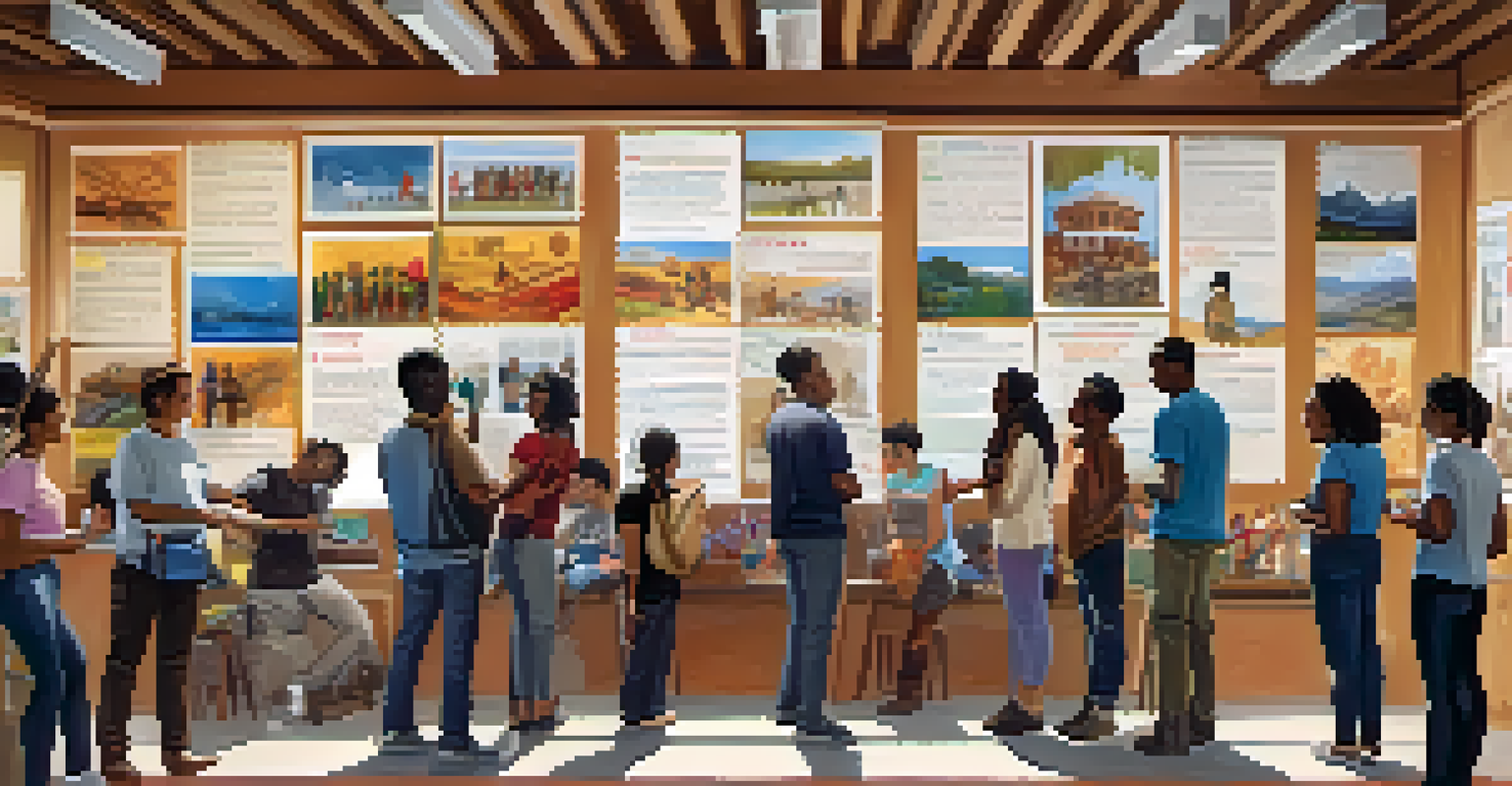Intercultural Competence: A Lifelong Learning Journey

Understanding Intercultural Competence and Its Importance
Intercultural competence is the ability to effectively communicate and interact with people from different cultures. It includes understanding cultural differences, recognizing one’s own biases, and adapting one’s behavior accordingly. In our increasingly globalized world, this skill is essential for personal and professional success.
The world is a book and those who do not travel read only one page.
Imagine navigating a foreign city without a map—challenging, right? That’s what it feels like without intercultural competence. Just as a map helps you understand new terrains, intercultural skills help you decode the complexities of diverse cultural landscapes. This competence fosters empathy and connection, making interactions more meaningful.
Moreover, developing intercultural competence can enhance teamwork, creativity, and problem-solving. When people from various backgrounds collaborate, they bring unique perspectives that can lead to innovative solutions. Thus, investing in this skill pays off not just for individuals, but for organizations as well.
The Lifelong Learning Aspect of Intercultural Competence
Intercultural competence is not a one-time achievement; it's a lifelong journey. Just like mastering a musical instrument, it requires continuous practice, feedback, and a willingness to learn. Cultivating this skill involves regularly engaging with diverse cultures and reflecting on those experiences.

For example, consider someone learning to play the guitar. They start with the basics, but as they progress, they must explore different genres and techniques. Similarly, as you engage with various cultures, you discover new dimensions and deepen your understanding. This ongoing process enriches your interactions and broadens your worldview.
Intercultural Competence Defined
Intercultural competence is the ability to communicate effectively across cultures, essential for personal and professional success.
Additionally, lifelong learning in intercultural competence encourages adaptability. In an ever-changing global landscape, being open to learning helps you adjust to new cultural norms and expectations. The more you learn, the more effectively you can navigate diverse environments, both personally and professionally.
Key Components of Intercultural Competence
There are several key components that make up intercultural competence: awareness, knowledge, and skills. Awareness involves recognizing your own cultural identity and biases, while knowledge encompasses understanding different cultural practices and worldviews. Skills are the practical abilities needed to communicate and interact effectively across cultures.
Empathy is about finding echoes of another person in yourself.
Think about it this way: awareness is like having a flashlight in a dark room—it helps you see what’s around you. Knowledge acts as the furniture in that room, providing context and depth to your understanding. Finally, skills are the ability to move around without tripping, allowing you to engage confidently and respectfully with others.
By focusing on these components, you can systematically enhance your intercultural competence. Engaging in self-reflection, seeking educational opportunities, and practicing active listening are all effective strategies. This journey requires commitment, but the benefits—richer relationships and greater empathy—are well worth the effort.
The Role of Empathy in Intercultural Interactions
Empathy is a crucial element of intercultural competence. It allows us to put ourselves in someone else’s shoes, fostering understanding and connection. When we empathize with others, we not only appreciate their perspectives but also validate their experiences, which is vital for meaningful interactions.
Consider how you feel when someone genuinely listens to your story. That sense of validation creates trust and encourages openness. In intercultural settings, this is especially important, as misunderstandings can easily arise due to cultural differences. Empathy helps bridge those gaps, making way for stronger relationships.
Lifelong Learning is Essential
Developing intercultural competence is a continuous journey that requires engagement with diverse cultures and a commitment to learning.
Practicing empathy can involve actively engaging with diverse communities, asking questions, and being open to new ideas. It’s about approaching conversations with curiosity rather than judgment. When we cultivate empathy, we enrich our intercultural competence, leading to more respectful and fruitful connections.
Overcoming Challenges in Developing Intercultural Competence
The journey to intercultural competence is not without its challenges. Misunderstandings, stereotypes, and biases can hinder effective communication and create barriers. Recognizing these obstacles is the first step toward overcoming them and enhancing your intercultural skills.
For instance, when faced with a cultural misunderstanding, it’s essential to remain calm and open-minded. Instead of reacting defensively, try to understand the other person’s perspective. This approach not only diffuses tension but also turns a potential conflict into a learning opportunity, ultimately strengthening your intercultural competence.
Additionally, embracing vulnerability is key to navigating these challenges. Acknowledge that you may make mistakes and that it’s okay to learn from them. By fostering a growth mindset, you can approach intercultural interactions with resilience and a commitment to continuous improvement.
Practical Tips for Enhancing Intercultural Competence
Enhancing your intercultural competence doesn’t have to be overwhelming. Start by seeking out diverse experiences—attend cultural events, take language classes, or travel when possible. These activities immerse you in different cultures, allowing you to practice and develop your skills in real-world scenarios.
Another practical tip is to engage in active listening. This means not just hearing the words, but also paying attention to non-verbal cues and emotions. By showing genuine interest in others’ stories, you create a space for open dialogue and learning, which is essential for building relationships across cultures.
Empathy Enhances Interactions
Empathy plays a crucial role in intercultural competence, helping to bridge gaps and foster meaningful connections between individuals.
Lastly, reflect on your experiences regularly. Journaling about your intercultural encounters can help you identify patterns, biases, and areas for growth. By taking time to process what you’ve learned, you’ll be better equipped to navigate future interactions with cultural sensitivity and confidence.
The Future of Intercultural Competence in a Globalized World
As the world becomes increasingly interconnected, the importance of intercultural competence will only grow. In workplaces, classrooms, and communities, individuals who can effectively engage with diverse perspectives will be essential. This skill not only enhances collaboration but also drives innovation in our global society.
Consider how businesses today often operate across international borders. Companies that prioritize intercultural competence in their teams are more likely to succeed, as they can navigate cultural nuances and build stronger relationships with clients and partners. This adaptability is crucial in a world where cultural awareness is a competitive advantage.

Looking ahead, investing in intercultural competence will be vital for personal and collective growth. As we embrace diversity and foster understanding, we pave the way for a more inclusive and harmonious world. Committing to this lifelong learning journey benefits not only ourselves but also the communities we inhabit.